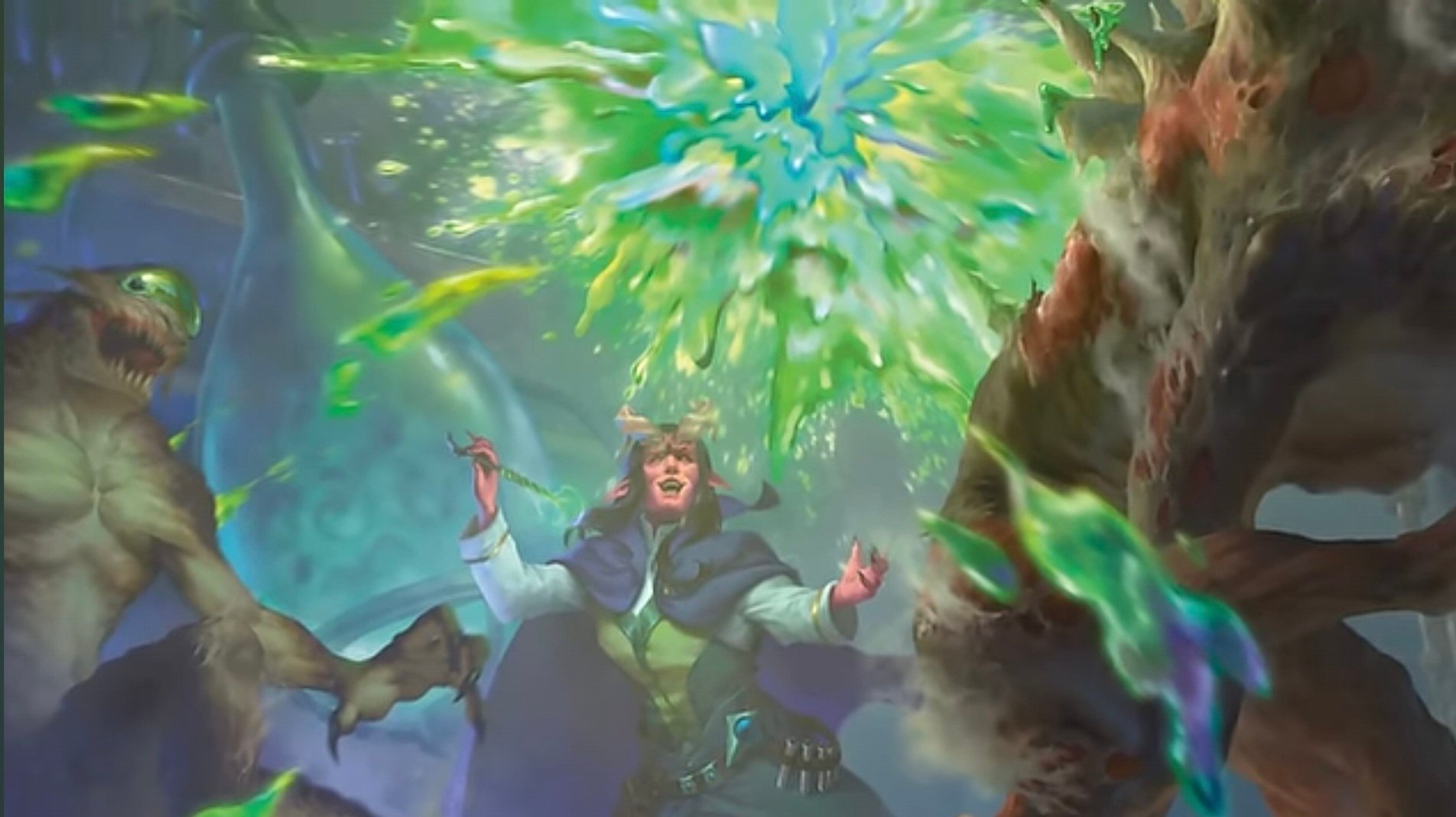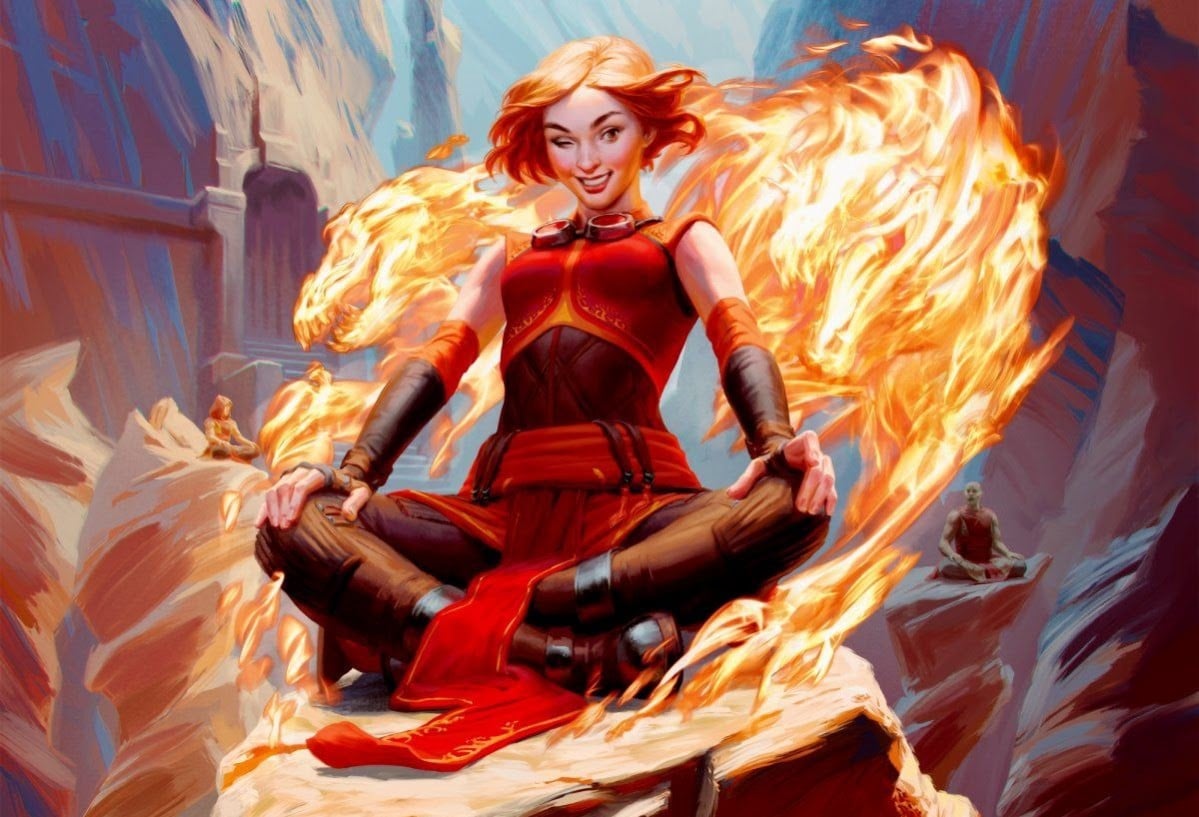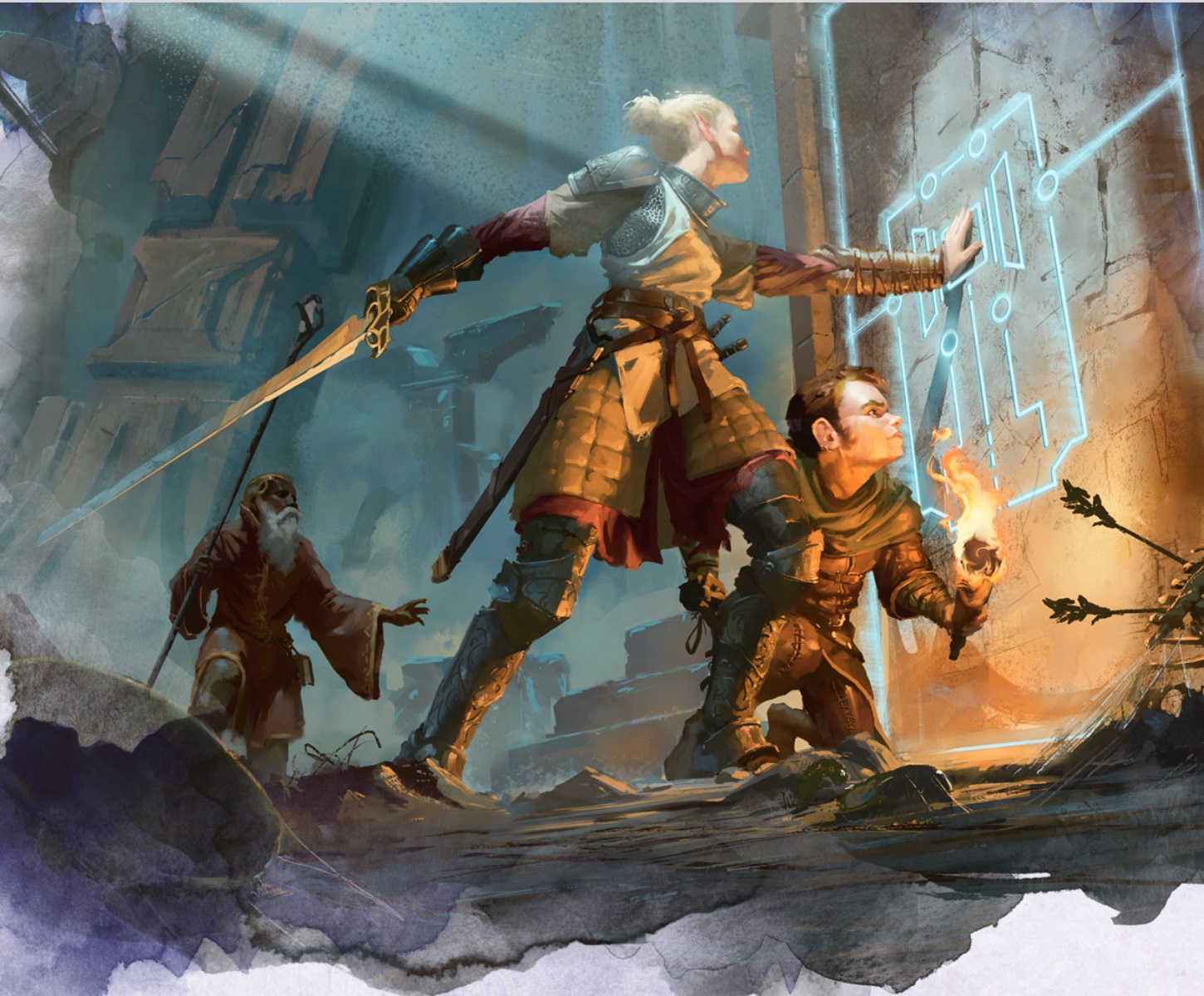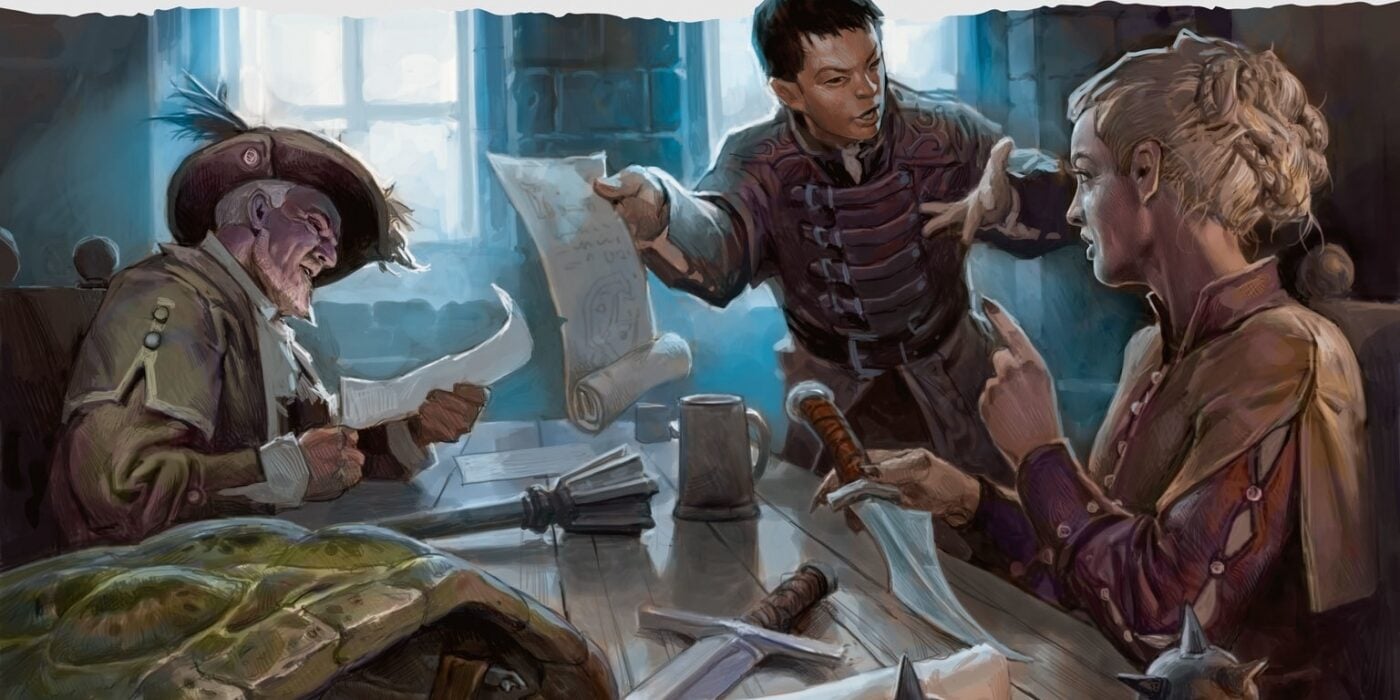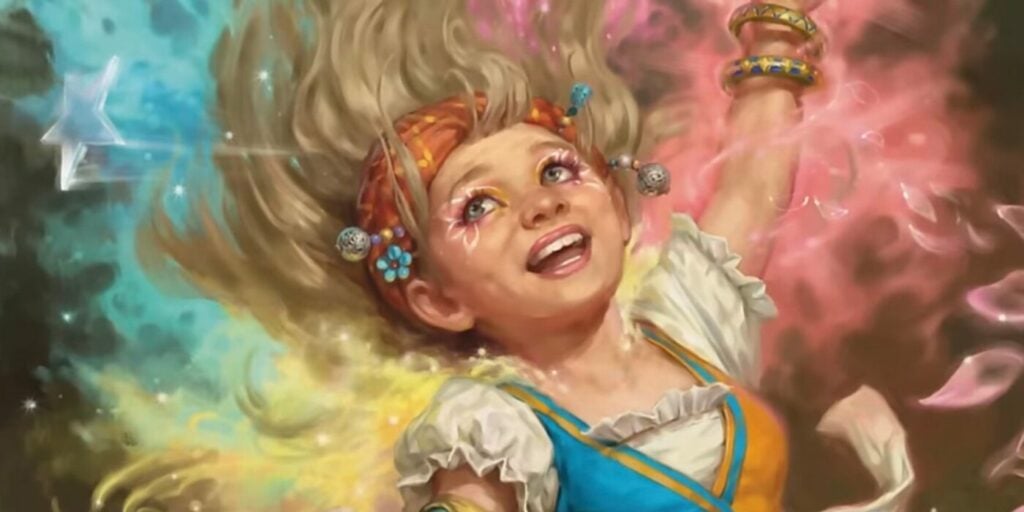D&D Beginner’s Guide: Avoiding Misadventurous Mistakes

Getting into D&D can often feel like a hefty undertaking. Here are some mistakes players make when starting that can ruin their experience going forward.
Making mistakes is easy. This is especially true when there are numerous details to remember in a process or specific information you must remember.
Getting into D&D can be somewhat daunting, especially for the inexperienced. It can even happen as early as character creation. Players become dazed by the 8d6 of psychic damage they take from the information overload just from making their first characters.
If I got a nickel every time I reminded my players how gaining HP via leveling up works, I could buy a beer for the subsequent headache it gives me.
And I get it. D&D has many layers of intricacy to its design. Players who follow the clearly defined rules will still find themselves with near-infinite creative possibilities. Examples range from how players use mechanics to enhance their gameplay to their backstory writing, giving them a complex muse to roleplay.
However, new players can only get into D&D’s more intricate designs after they master D&D’s fundamentals first. And they can only do that by making mistakes and learning from them early on.
So sit down. Grab a snack. And prepare to cringe at the relatability of this article. Because these are some beginner D&D mistakes that many novices always live to regret making.
Mary Sue’s Narcissism Diagnosis
While it might be hard to nip this bud before it blooms, understanding you aren’t the only person at the table is insanely important.
If you need help remembering this section, use this simple acronym: Y.A.L.S.I.
Or YOU AREN’T LUKE SKYWALKER, IDIOT.
In D&D/TTRPGs, this acronym reminds players that their character is not the only one meant to be in the spotlight when playing with others. No one wants to be a side character in their own story.
Characters tell a story firsthand through campaigns. It is never just one character getting all the attention.
If one person is getting all of the attention, it can make all the other players feel less important by comparison, like their actions don’t matter as much.
So, when making a character for a D&D campaign, remember that you CAN have your backstory. At the same time, your character should be engaged with more than just their own story. Other characters can be great when building your character’s connections.
In summary, don’t make “GOD-SLAYER, THE HUMAN FIGHTER WITH A ZEALOUS HATRED OF ALL WHO OPPOSE HIM,” and you should be peachy keen.
Also, as a note for all DMs reading this, your NPCs shouldn’t be the story’s primary focus. After all, you gathered your players to be a part of your story. Let them have the time to shine in it.
Wait, Does the V Stand for Verbal or Visual?
Unless you have a photographic memory for the rulebook, there is a high likelihood that D&D’s mechanics will only start to make sense after you start rolling the dice.
This is especially true for spellcasting classes. The fandom may make it seem alluring to play a cleric who can summon the wrath of god to smite their enemies. But the thing most people fail to describe is how complex spellcasting can be, especially for someone new to the game.
Spell slots can take anywhere from a day to a month to understand. This doesn’t even include that every spellcasting class has intricacies regarding how their spellcasting works.
Warlocks only have to do a short rest to get their spell slots. Meanwhile, every other class has to undergo a short-term coma to get theirs back. Why?
Some spellcasters use monster eyeballs and diamonds to cast their spells. Why do that instead of a spell focus?
I still don’t fully understand how prepared spells work, so please don’t get me started on them.
If you want to try spellcasting as a new player, try playing a half-casting class so you don’t overwhelm yourself. Ranger, Paladin, Arcane Archer Fighter, and Arcane Trickster Rogue are all great half-casting classes/archetypes that use spells but are relatively more beginner-friendly due to their focus on martial mechanics and combat.
Or, alternatively, don’t play a spellcaster at all. Understanding the basics of D&D’s mechanics is crucial before making more complicated character class builds. And you can still have plenty of fun playing martial-only classes!
Monk has so much versatility in and out of combat, and it’s insane. Rogue’s can get such high rolls thanks to their expertise class feature that it sometimes feels like you’re untouchable. And fighter? Oh my god- everyone who complains about how basic Fighter is hasn’t played Fighter at a high level and seen how fun it is.
This is My Original Homebrew World, So It’s Like Naruto but with Guns
If you’re going to be DMing your first D&D game, do not fall into the common trap most beginners trip and fall headfirst into. Do not DM a homebrew campaign. Run a campaign from a module.
Making a campaign from scratch is almost a million times harder than running a campaign that’s been written for you. And that’s just a basic fact.
When first starting out, it might seem fun to have the chance to tell your own story to your players. But running a homebrew game is only recommended if you aren’t worried about the inevitable metric buttload of work that comes with it.
Not only do you have to make your own world build, NPCs, plot points, etc. But if it’s your first game, there is also a high chance that you will be learning the rules simultaneously. This mixture of insane creative output and on-the-fly rules cramming can lead to some very immersion-breaking moments mid-game.
Just imagine it. You have spent the last week working on a great boss fight. You have trudged long and hard through several weeks of sessions. And now, you’re ready to see some of it pay off.
Combat begins, and you have to spend a few minutes looking up how tiebreakers work for initiatives. Then you fail to understand how legendary actions work, so you have to take some time to look at those rules. Aaaaand Terrance had to use the bathroom so you not have to wait for him to come back, of course. Next thing you know, two hours of straight combat have passed, the boss isn’t dead, and over half your time has been spent double-checking the rules.
While you don’t HAVE to run a pre-written module as your first game, I assure you that it will make learning the do’s and don’ts of DMing significantly easier. Namely, you’ll be able to focus on being a DM instead of worrying about the interpolitical relationship between the Feywild and the town of Buttstallion.
The Calendar Conundrum
It’s a tale as old as time. Randomly, you’ll find it out of nowhere, even if you don’t want it. Like the rotten leftovers in the back of your fridge, one day, when everything seems to be going great, it will suddenly be there to ruin your mood.
Before you think about putting a TTRPG together, when you know who your players will be, immediately ask for their availability. I have seen so many games get put together, with days of deliberation and planning between players regarding what they want to play, only to fall flat because of lousy pre-production planning.
Oh my god, it makes me want to pull my hair out, ESPECIALLY BECAUSE IT HAPPENED TO ME RECENTLY.
Before you or anyone else gets overly excited or attached to the campaign, please consider your and your friends’ real-life schedules first. No one wants to get their hopes up for something only to have it fall apart because of an unaccounted-for work schedule.
Talk to each other. D&D is a TTRPG that requires a lot of communication. Whether in roleplay or when discussing out-of-game what you want to do with your character (or with the characters of others).
What’s your take on this though? What are some stupid beginner mistakes you’ve made that you hope others learn from?

